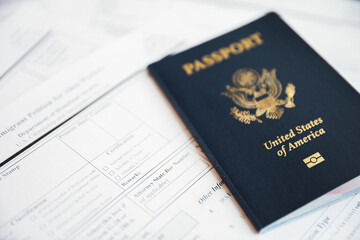Form I-130 is an important document that jumpstarts the process of many foreign individuals securing a green card and valid status in the United States. Immigration laws can be complex, so understanding who can file Form I-130 is crucial in ensuring that your and your family’s rights are protected. To learn more, speak with an experienced Queens family immigration lawyer today.
What is Form I-130?
Form I-130 is a USCIS petition titled the Petition for Alien Relative. This form is used to establish the relationship between a qualifying individual in the United States and their relative whom they wish to sponsor.
Filing this form is the first step in helping a family member obtain a green card, which offers permanent residency, meaning that the cardholder can live and work in the United States permanently.
It is important to note that filing this form does not count as an application for a green card. It simply proves that the sponsor and foreign individual have a legitimate and qualifying relationship. Once the petition is approved, the foreign relative can proceed with applying for a green card.
Who Can File Form I-130?
In the United States, only citizens and lawful permanent residents (green card holders) can file Form I-130 on behalf of their relatives. However, there are differences between who citizens and green card holders are permitted to file for. Consider the following.
United States citizens may file Form I-130 on behalf of their:
- Spouse
- Unmarried child under the age of 21
- Unmarried child 21 years of age or older
- Married child of any age
- Brothers or sisters, given that the filer is 21 years of age or older
- Mother or father, given that the filer is 21 years of age or older
Lawful permanent residents may file Form I-130 on behalf of their:
- Spouse
- Unmarried child under the age of 21
- Unmarried child 21 years of age or older
It is important to note that there are stipulations for individuals filing for adoptive parents or children, biological parents if the filer is adopted, stepparents and stepchildren, etc. If you wish to file Form I-130 on behalf of your relative, understanding the specifics of the law and your situation is crucial.
What Information is Required for Form I-130?
The petitioner must provide a significant amount of information and documentation when filing on behalf of their relative. The information required will be about both themselves and their family member. Some important information and documents include the following.
- Full names
- Addresses and contact information
- Birth certificates
- Naturalization or citizenship certificates
- U.S. passports
- Immigration status
- Marriage certificates
- Photographs
- Affidavits
- Bank account statements
Depending on the nature of the relationship, petitioners may be required to provide varying information and documentation.
For more information, navigate to the USCIS website and consult with a knowledgeable immigration attorney.



